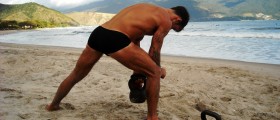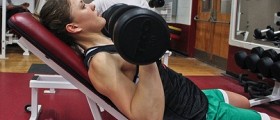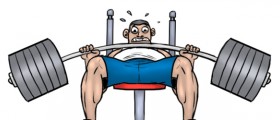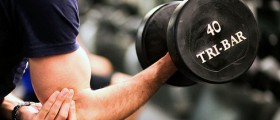For whatever goal they want. Run a 5k, run 3 miles a day, 40 a week, whatever. Whatever happened to going by feel? I understand the thinking behind wanting to do something the best way or along proven guidelines, but I think they really miss the target when you're a beginner. When you're a beginner runner, you don't have much experience and you don't know what is pushing too hard or what effort is too little to yield results - but that's where feel comes in. You get it as you develop it, and it will develop much more quickly if you're running based on it instead of a spreadsheet of times and distances. This is the same feel that lets you know how good of a runner you can be, how far you can run and at what pace in what conditions. If your goal is a race - you want a developed sense of feel to know exactly how hard you can push yourself without bonking. No program can tell you that. It's also a better way to stay injury free - if you really listen to your body instead of doing what the program says to do for a workout. And finally, I think it helps with motivation to do it by feel. If you have to rely on a program to motivate you to run a particular day, it's going to be a struggle when you have to modify or even create your own routine further down the line. No one knows yourself like you do, why would you run any differently?
Just my :twocents:
Just my :twocents:
Loading...
Good topic...Being able to listen to your body and go by feel however does take some time and experience. It is a necessary skill however for all runners to learn.
It is definitely true that newbies lack experience in reading their body's signals. Certain training tools such as HRMs can be useful in helping you gauge intensity/feel based on heartrate. Later on, as you become more experienced, you use other cues such as breathing rate, the feel of your legs, even sweat rate to read your body signals. These are the sort of body signals I've learnt to rely on as a runner through the years of training and racing. I used to wear a HRM when I was a newer, inexperienced runner but now I've stopped wearing the chest transmitter because I've developed a fine-tuned sense of how my body feels and reacts at different training intensities/paces (therefore I don't see the need to wear extra equipment to track my HR when I already can read my body's signals on a given day).
It is definitely true that newbies lack experience in reading their body's signals. Certain training tools such as HRMs can be useful in helping you gauge intensity/feel based on heartrate. Later on, as you become more experienced, you use other cues such as breathing rate, the feel of your legs, even sweat rate to read your body signals. These are the sort of body signals I've learnt to rely on as a runner through the years of training and racing. I used to wear a HRM when I was a newer, inexperienced runner but now I've stopped wearing the chest transmitter because I've developed a fine-tuned sense of how my body feels and reacts at different training intensities/paces (therefore I don't see the need to wear extra equipment to track my HR when I already can read my body's signals on a given day).
Loading...
















